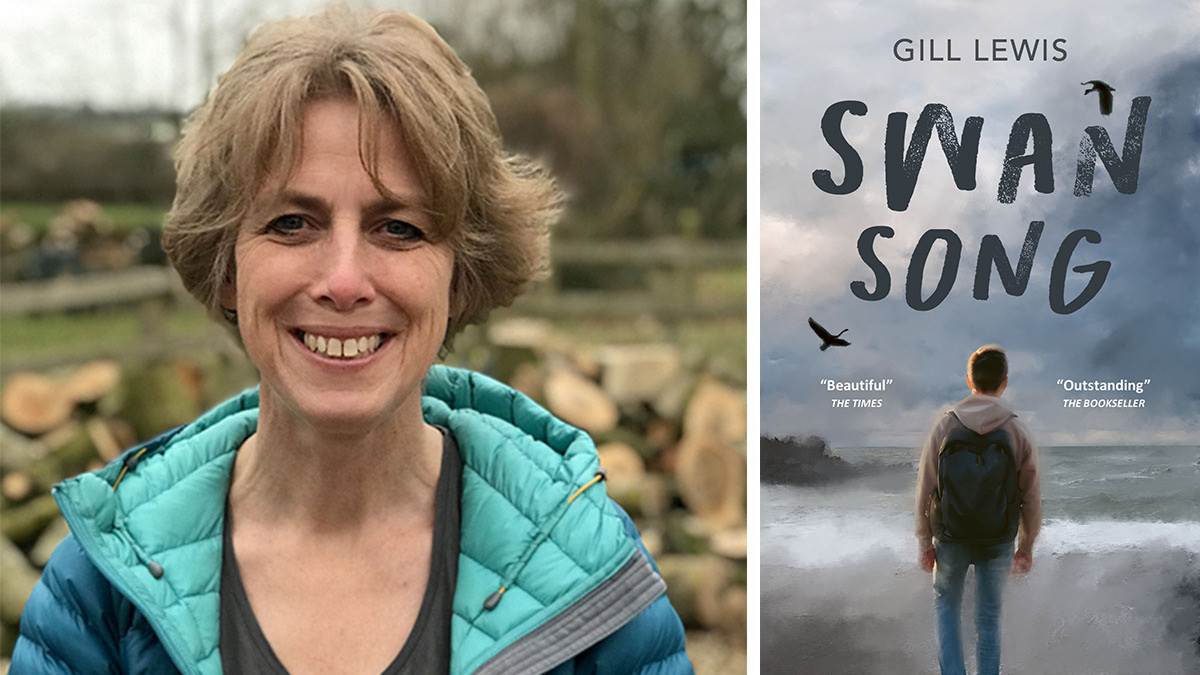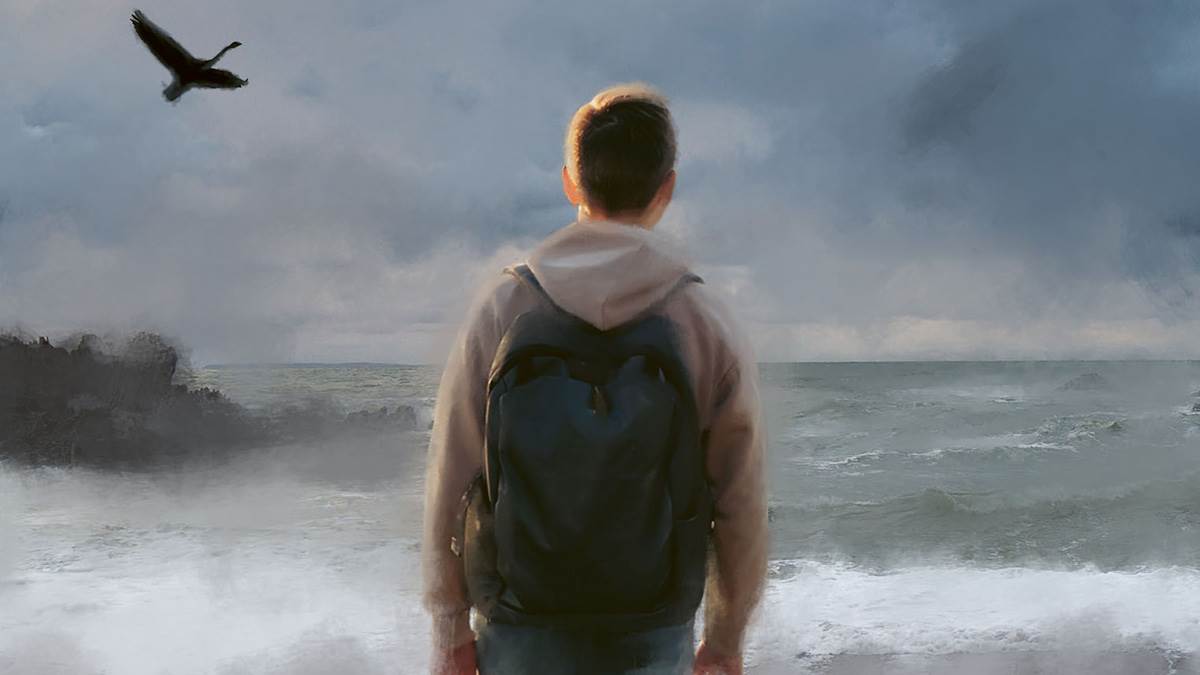Swan Song and how nature can help you out
Published on: 04 September 2023 Author: Gill Lewis
Swan Song author Gill Lewis shares how nature helped her when she was going through a tough time at school.

I admit it. I didn't like secondary school.
I didn't like the corridors, the bells, or the red lines across my schoolwork. I didn't like having to sit down all day, where the only activities were organised team sports. At primary school I loved writing stories, but at secondary school we just stopped writing stories. English lessons became all about spelling and grammar, instead of playing with ideas of endless possibilities.
The friends I knew at primary school seemed to change. I was changing too. I tried to be cool. I turned my back on the things I was really interested in – animals, wildlife and wild places. I never succeeded in being cool. I succeeded in being incredibly bored. I was in limbo, between a happy childhood and uncertain future where everything around me was changing beyond my control.
How being in nature helped me
Yet one memory stays fixed in my mind. It's vivid even now. I was on a camping holiday in Wales. I was 13. I had been in a foul mood and went by myself to sit on the sand dunes late in the evening, as a storm rolled in from the sea. The sea was oily black and eerily calm. A flock of rooks, unsettled by the weather, took to the sky, and swirled above me.
It began to rain, huge heavy fat drops of water hitting me and pitting the sand around me. The storm broke and lightning flashed across the clouds, and thunder rumbled across the estuary. I remember digging my fingers into the soft cool sand and turning my face to the rain.
I felt more alive and connected to the world in that one moment than I had been for a long while.
So I wanted to write a story about that connection to a wilder place, about waking up to the world, about finding headspace, taking a step back from all the pressures of life, and having time to simply just be.
How I wrote about nature in Swan Song

Swan Song became a story about Dylan, who is struggling at school, with schoolwork, friendships and his own mental health. He is angry, bored and frustrated. His world is changing beyond his control. Teachers despair of him, his mother is desperately worried for him and his friends are slowly slipping away. When his anger boils over, he hits another pupil and is expelled from school.
He and his mother go to live with his grandad in a Welsh coastal town, in a small cottage with no internet, no TV and nothing to do. But slowly his world begins to change. I wanted to show the importance of connection to community and show how people who don't judge but offer help can turn some lives around. I wanted to show how access to nature is vital for mental and physical health.
Slowly, Dylan builds confidence in others and in himself. He begins to like himself again. He learns new skills. He has headspace to think and reflect. But perhaps most important of all, he becomes connected to a place, to the estuary where the wild whooper swans come to stay for the winter before returning to Iceland in the summer to breed. When Dylan finds an injured swan, he doesn't realise how much they will need each other.
Dylan feels alive out in his grandfather's boat on the estuary, beneath the big skies, and watching all the wildlife. He loves learning to steer his grandfather's boat and although he can't control the weather and the waves, he can control the boat, and in doing so he understands that he can begin to take control over his own life too.
But when the estuary is under threat from destruction by developers, will Dylan be able use all that he has learned to save the swans and convince the community to save them too?
Topics: Bookbuzz, Animals, Mental health, Nature
